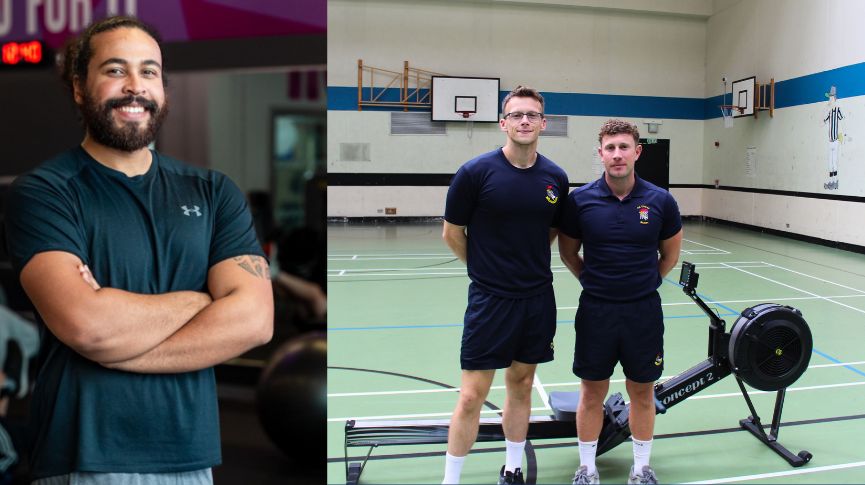How rowing instructors and Physical Education Instructors at a high security prison in London are rebuilding lives through sport
To mark National Fitness Day (24 September), HMP Belmarsh and British Rowing have joined forces to spotlight the transformative work taking place every day behind prison walls

Physical Education Instructors (PEIs) at HMP Belmarsh – a high security prison – help to keep the public safe and use sport, movement, and education to give prisoners a sense of purpose.
British Rowing, with the help of master trainer CJ White, has trained PEIs in indoor rowing technique in 21 prisons, so far. The PEI’s then coach prisoners to build confidence, improve wellbeing, and reduce reoffending.
Rowing changed CJ’s life at 14 and diverted him from peers who were engaged in criminal activity. Now a coach and trainer supporting young people from underprivileged and underrepresented backgrounds, CJ works to make indoor rowing more inclusive and accessible, bringing his lived experience of transformation through sport and his elite level rowing technique, to upskill PEIs from across England and Wales.
Tim Ward and Terry Bickley, PEIs from HMP Belmarsh, and CJ have set out their top tips to help prisoners make positive changes.
Confidence – Finding Self-Belief Through Progress
“Coaching prisoners in indoor rowing helps rebuild confidence,” says CJ White. “It’s about setting goals and seeing yourself differently.” PEIs encourage goal-setting and celebrate progress, fostering self-belief and resilience.
Discipline – Building Routine and Responsibility
“Indoor rowing is all about rhythm, focus, and showing up consistently,” says CJ White. “Those skills transfer to everything else.” PEIs deliver structured programmes to all prisoners, helping them develop healthy habits and a sense of routine. For those who demonstrate consistently good behaviour, there are opportunities to spend additional time in activities such as football, yoga and indoor rowing.
Purpose – The Mindset Shift That Changes Everything
“I’ve seen people go from withdrawn to mentoring others,” says PEI Tim. “It starts with purpose.”
PEIs and working in a high security prison
PEIs are currently being recruited across the prison estate. Starting as a prison officer, candidates can progress to PEI roles after 12 months, with full training, career development, and Civil Service benefits.
Tim goes on to explain: “As a PEI I am able to keep learning and developing and bring my love for sports and fitness into the job I do every day. The passion I have for a healthy lifestyle spreads to both colleagues and the prisoners, encouraging them to attend the gym to better themselves.”
Terry adds: “My reasons for wanting to become a PEI were down to my passion for training, playing and coaching sport. I have done this from a very young age which helps me to keep healthy, not just physically but mentally as well. Also working with prisoners who have no experience in these areas and being able to help them achieve their goals, whilst giving them the basic knowledge of different types of training is very rewarding.”
PEIs lead from the front – delivering challenging fitness programmes, driving discipline and resilience, and working with national partners to support rehabilitation.





